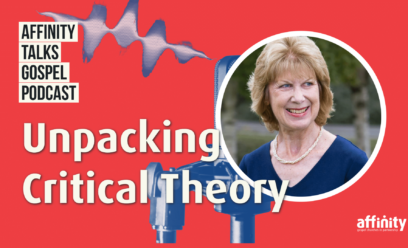Are we seeing signs of awakening in the United Kingdom?
This article first appeared in our Social Issues Bulletin – Issue 56 which is available to download here.

The current spiritual state of the nation[1]
The 2022 census revealed that a majority of people in Scotland (51%) now acknowledge that they do not follow any religion. Only a decade before, 54% checked the Christian box on the census; now only 38.8% make this claim.[2] Even this number seems far too inflated when judged by the reality on the ground in terms of active church participants. Statistics from 2017 showed that only 7% of the population attended a church of any kind.[3] After clarifying what percentage of that could meaningfully be called ‘evangelical’ you are left with about 1.5% of Scotland’s population. On a cultural level, this has seen widespread closure of churches of all kinds. Just recently, The Church of Scotland announced that a hundred of its churches were being closed permanently and the buildings sold – some at incredibly low rates. The announcement led to one headline in The Telegraph saying ‘…UK turns away from Christianity’.[4]
In England and Wales, the big picture presents similarly. The 2021 census revealed that 46.2% of the population were happy to check the box describing themselves as Christian. While that may seem significant, it is down from 59% in a decade – a drop of 5.5 million. Oh, and only 5% care enough about whatever their type of ‘Christianity’ is to attend a church. Meanwhile, 37.2% actively self-identify as non-religious and in third place is Islam, which has grown from 4.9% of the population to 6.5% in the last decade. On a local level, I am privileged to live and serve in London’s densest populated borough, Islington. Sadly, Islington has also been described as ‘the borough with no religion’ with a clear majority of residents (40.8%) identifying as having ‘no religion’. While it seems encouraging that 34.7% identified as ‘Christian’, as with the national scene, church involvement is in single-digit percentages and evangelicals likely number around 2%.
Christianity on the fringe
With the UK being very firmly situated in the ‘post-Christian’ bracket, it should come as no surprise that some seem quite happy to see open Christians pushed to the fringe of public relevance. Kate Forbes, a leading light in the SNP in Scotland, has routinely been hounded for beliefs that are part and parcel of her evangelical faith.[5] Tim Farron expressed a similar experience following his resignation from Liberal Democrats leadership, and more recently, David Campanale was deselected from serving as a Liberal Democrat candidate over his own Christian beliefs. Anyone who receives regular updates from Christian Concern or The Christian Institute – or is a regular reader of this Bulletin – will know that these are not isolated experiences, nor are such elements of prejudice against Christians relegated only to the realm of frontline politics.
Revival, renewal, and awakening
Taking the above into consideration, one would be forgiven for thinking we have no ground at all to be thinking there are signs of awakening in the UK. And yet there is more that must be considered and prayed through before we arrive at a considered answer.
Understanding revival, renewal, and awakening
The terms revival, renewal, and awakening are often used interchangeably but signify distinct spiritual phenomena. They describe profound shifts in individuals, churches, and communities where people turn to God through repentance and faith in Jesus. Historically, these terms evoke seasons marked by visible and transformative works of the Holy Spirit, reviving spiritual life from states of spiritual emptiness or decline. Today, they acknowledge a current state of spiritual need and yearning for new, transformative realities empowered by the Holy Spirit. These concepts resonate deeply in evangelical circles through songs, prayer gatherings, and preaching, reflecting a widespread longing for spiritual renewal and awakening.
Revival, renewal, and awakening is all about God
Revival, renewal, and awakening are not synonymous, though they certainly do not operate in isolation from each other. Revival is when the Holy Spirit works in Christians and local churches, arousing them from a state of sinful spiritual sleep and sluggishness. True revival is all about God. It is of God, by God, and through God. It is not man-generated; it is Spirit-led and governed. Revival refocuses, reminds, and refreshes God’s people on who he is and how he has revealed himself. When God revives his people, they recognise and appreciate his worth, they rediscover and value his word, they request and enact his will, and they continue in repentance and faith in his way.
In a revived recognition and appreciation of God’s worth, Christ-followers see and take joy in the truths that God is merciful, loving, holy, all-knowing, just, judge, true, wise, powerful, able, saviour, praiseworthy, and good. How can we keep from singing his praise, crying out to him in prayer, and lifting holy hands? Appreciation of God’s essence cannot be amputated from a revived rediscovery and valuing of his Word. In 2 Chronicles 34, the rediscovery and reading of the Torah, God’s Law, sparks revival in Israel leading to repentance and restoration of pure worship. Revival sees people read and share God’s word, searching out the depths of its wisdom while requesting and enacting his will therein. Through this revival, God’s people will see that the change so desperately needed personally, culturally, nationally, and universally is found in repentance God’s way, which in turn sees renewal that can lead to others being awakened to the gospel.
True revival begins in the heart
In the Ketuvim, ‘the writings’ of the Old Testament, the chronicler records God’s promise to Solomon upon completion of the Temple for the people’s revival and subsequent renewal. He says, ‘If my people, who are called by my name, will humble themselves and pray and seek my face and turn from their wicked ways, then I will hear from heaven, and I will forgive their sin and will heal their land.’ (2 Chronicles 7:14).
Often when we pray for revival, renewal, and awakening we have the mentality of us and them. ‘Lord save those people over there’. ‘Lord change him’. ‘Lord change her’. We hear Christians ask ‘Where is the church? Why won’t the church revive? Why won’t the church stand up?’ It is good and right to pray for others, of course. Yet praying for others to be revived when you are not, leads to nothing. Charles Spurgeon comments:
Careless professors are as much out of place as snow in harvest among truly living Christians. As vinegar to the teeth and smoke to the eyes are these sluggards. As well be bound to a dead body as forced into union with lifeless professors; they are a burden, a plague, and an abomination. You turn to one of these cold brethren after a graciously earnest prayer meeting, and say with holy joy, ‘What a delightful meeting we have had!’ ‘Yes,’ he says carelessly and deliberately, as if it were an effort to say so much, ‘there was a good number of people.’ How his frostbitten words grate on one’s ear! You ask yourself, ‘Where has the man been? Is he not conscious that the Holy Ghost has been with us?’ Does not our Lord speak of these people as being cast out of his mouth, just because he himself is altogether in earnest, and consequently, when he meets with lukewarm people he will not endure them? He says, ‘I would thou wert cold or hot,’ either utterly averse to good or in earnest concerning it. It is easy to see his meaning. If you heard an ungodly man blaspheme after an earnest meeting, you would lament it, but you would feel that from such a man it was not a thing to make you vexed, for he has only spoken after his kind, but when you meet with a child of God who is lukewarm, how can you stand that? It is sickening, and makes the inmost spirit feel the horrors of mental nausea.[6]
Revival and its subsequent renewal is not about us and them. It doesn’t begin with unbelievers; rather it is a work of the Creator in recreating our own hearts as his people individually. David cries out in desperation, ‘Create in me a pure heart, O God, and renew a steadfast spirit within me.’ (Psalm 51:10) National awakening begins with congregational revival and renewal among God’s people, and congregational revival and renewal begins with personal revival and renewal, which then goes on to impact the church body. It is fundamentally God-elevating and self-humbling. It sees a work of humbling in the one seeking God where, like David, he says ‘I am a transgressor. I am a sinner. I have done evil. I deserve God’s righteous punishment. I am iniquitous. I am unclean. I am broken. I am wrong. I am blood guilty. I cannot accomplish my own salvation…MAKE ME NEW!’
And he does.
Revival restores true worship
The impact of revival sees a renewal of vibrant love for God in word and action. It sees God’s people stirred up to love and good works not out of a spirit of legalistic duty, but genuine desire. It sees us present our lives selflessly and sacrificially for his cause, trusting him to broaden our horizons and expand our energy for his work. R. A. Torrey commented on the means through which revival and awakening come as centring on this restoration of individuals who then collectively and worshipfully pursue God while engaging the world with his message:[7]
First, let a few Christians (they need not be many) get thoroughly right with God themselves. This is the prime essential. If this is not done, the rest, I am sorry to say, will come to nothing! Second, let them bind themselves together to pray for a revival until God opens the heavens and comes down. Third, let them put themselves at the disposal of God to use them as He sees fit in winning others to Christ. That is all. This is sure to bring a revival to any church or community.
Any discussion about a spiritual awakening in Britain must begin by acknowledging the critical need for revival and renewal among individuals and congregations as followers of Jesus Christ. While desiring national change and transformation is commendable, it must align with the principles revealed in God’s Word. This process starts with personal and collective reformation according to Scripture alone, abandoning outdated traditions and preferences to pursue purity and truth in both word and action.
This journey of renewal is often a gradual process. Consider King Josiah of Judah, who ascended to the throne at a young age amidst a history of corrupt leadership. Beginning his earnest pursuit of God at sixteen, he dismantled idols and restored the temple by his twenties, leading to a rediscovery of God’s law and a widespread repentance towards pure worship. Despite subsequent challenges, later figures like Ezra and Nehemiah would further restore the nation’s devotion to God, illustrating cycles of revival and renewal throughout biblical history.
Ezra 9 provides a testament to this renewal among God’s people, affirming God’s faithfulness even in times of slavery and exile, granting revival to rebuild and protect the temple in Judea and Jerusalem. Such revivals see individuals who once knew God’s blessings calling upon Him anew (Psalm 80:18, 85:6). In the New Testament, this empowerment by the Holy Spirit enables believers to spread the Gospel to new regions, catalyzing awakening to God’s salvation. Ultimately, revival leads to widespread renewal, as God’s transformative work prompts countless to turn to him in repentance and faith.
So… Are we seeing signs of an awakening?
From about 1735 to 1740, under the preaching of Jonathan Edwards, George Whitefield, and others, the American colonies experienced a massive spiritual awakening which came to be known as the First Great Awakening. At a time when the secular rationalism of the Enlightenment was thriving, these pastors and others proclaimed the Biblical truths that God is holy, sin is serious, humanity is enslaved to sin, and needs the Holy Spirit to regenerate hearts so that people might repent, believe, and be saved by turning to Jesus Christ. God saw fit to use simple, straightforward, prayer-prepared gospel preaching to transform tens of thousands in such a way that had a long-lasting impact.
Despite the initial discouraging statistics mentioned at the beginning, there are grounds for optimism in the United Kingdom. The decline and closure of institutional liberal churches and legalistic congregations can be seen as a positive development. Reflecting on Matthew 5:13 (‘If salt has lost its taste…’), it is evident that churches which merely bear a name but do not cherish and proclaim the Gospel are destined to fade away. This process echoes the warnings in the letters to the churches in Revelation, which foretell closure for those lacking genuine spiritual vitality, irrespective of their historical significance or material wealth.
John Stevens (Fellowship of Independent Evangelical Churches) has commented on several occasions on the decline of the Church of Scotland:[8]
The decline of denominations like the Church of Scotland, which have largely abandoned the gospel, is not the full story of UK Christianity. Evangelical churches that faithfully preach Christ are consistently seeing slow and steady growth overall – both conversions and transfer growth through migration.
The UK is not turning from Christianity but rejecting empty folk religion that was never true Christianity in the first place. The major decline is in allegiance to the Church of Scotland – and this is inevitable given that it is a liberal denomination that affirms same-sex marriage. Liberalism in the church proclaims its own irrelevance to the culture because it has nothing unique to offer that can’t be better delivered elsewhere.
Across the UK, churches that have fallen into liberalism are failing. Indeed, progressive ideology, with its denial of Scripture’s authority and sacred cow of same-sex marriage, seems to be the death knell for many congregations. Churches that are faithfully upholding the authority of the Bible and living it out are growing. This is statistically evident. John Hayward comments with accompanying analysis:
To date, no growing church has adopted same-sex marriage. All of these denominations hold firm to historic Christianity. Indeed, they are all evangelical in doctrine. Additionally, they have statements that affirm marriage as between a man and woman only – the historical and Biblical position. I propose that their confidence in the authority of Scripture enables them to stand against progressive ideology and drives their efforts in making disciples. They know what God requires of them in both behaviour and mission… Not all denominations are declining; there are growing ones: churches that stand on historic Christianity and against progressive ideology. Can they continue to stand? Will they go further and seek a greater empowerment of the Holy Spirit, taking revival seriously? Can they learn from the rapidly growing Christian movements in other parts of the world, those for whom discipleship and replication are church priorities?[9]
While I see liberal (and on the flip side legalistic) churches declining around me, I am hearing from multiple pastors from across evangelical groupings, organisations, and ministries of greater interest and engagement in church life, including from those without any Christian background. John Stevens has said that ‘within FIEC we have seen more growth, conversions, and baptisms after COVID than before.’ In my own context as a pastor of a local church, we have seen around 60 credible professions of faith in baptism in The Angel Church in the past four years. In the years from 2007 to 2020, there were maybe 10. A sister church which we were involved in helping to plant – Wimbledon Baptist Church – has seen similar. Their pastor, Barry King, reports that 10 of the newly constituted church’s 20 members have come to faith and been baptised in the church in the past two years. Reports of similar from across churches supported in their planting and revitalisation across England and Scotland by Grace Baptist Partnership abound.
Commission-affiliated pastor of Mosaic Multicultural Church (Elephant and Castle) and City Catalyst for The London Project, Alex Brito tells me his conviction that there is certainly ‘a kind of Gospel renewal in London’ and points to the significance and importance of missionaries and migrants – particularly from the Global South – coming to live in the UK where they are evangelising individual and multiple ethnic groups to great effect. Alex’s conviction is backed up statistically – the number of congregations in London grew by 50% between 1979 and 2020, and its churches have been characterised more by growth than by decline in the decades since 1980, leading some to speculate that London could become the first ‘desecularised city’.[10]
I believe it is far too early to say whether we are on the cusp of another ‘Great Awakening’ in the United Kingdom. In the common bipolarity of human emotion and thought, I sometimes feel that we are so far away from true spiritual awakening that the suggestion itself is bizarre, while on other occasions, I experience a tangible sense that we are on the brink of that awakening which many of us have longed and prayed for. The latter mostly comes as I experience revival and renewal personally and in my local church context. My prayer is that others are experiencing the same revival and renewal and that, perhaps, together we will all know and rejoice in en masse awakening for God’s glory and the good of our land!
Footnotes:
[1] The Office for National Statistics (ONS) reported significant findings from the 2021 Census, indicating a shift in religious identification in the United Kingdom. See: https://www.ons.gov.uk/peoplepopulationandcommunity/culturalidentity/religion/bulletins/religionenglandandwales/census2021
[2] See online: Scotland’s Census 2022 “Ethnic group, national identity, language and religion”, Scotland’s Census 2022 – Ethnic group, national identity, language and religion | Scotland’s Census
[3] See online: Evangelical Focus Europe, Church attendance in Scotland falls from 12% to 7% in fifteen years, Edinburgh, 28 April, 2017. EDINBURGH, Church attendance in Scotland falls from 12%to 7% in fifteen years | Evangelical Focus.
[4] See online: Joe Wright, Hundred of Scottish churches up for sale as UK turns away from Christianity (msn.com)
[5] See online: Margaret Taylor, Kate Forbes: ‘There’s a complete illiteracy about faith and religion and what it means for someone who believes’, Kate Forbes: ‘There’s a complete illiteracy about religion and what it means for someone who believes’ (holyrood.com)
[6] C.H. Spurgeon, “What Is a Revival?”, Sword and Trowel, December 1866
[7] R. A. Torrey was a prominent American evangelist and pastor in the late 19th and early 20th centuries, closely associated with D. L. Moody and involved in the early years of the Moody Bible Institute. He authored several books and was known for his emphasis on revival and evangelism.
[8] See online: Mainstream churches face extinction in the UK: “Liberalism has little to offer that cannot be found elsewhere” | Evangelical Focus.
[9] John Hayward, UK Church Decline and Progressive Ideology – Church Growth Modelling (churchmodel.org.uk), 20 May, 2022.
[10] See: David Goodhew and Anthony-Paul Cooper, The Desecularisation of the City: London’s Churches, 980 to the Present (Routledge, 2020).

Stay connected with our monthly update
Sign up to receive the latest news from Affinity and our members, delivered straight to your inbox once a month.



